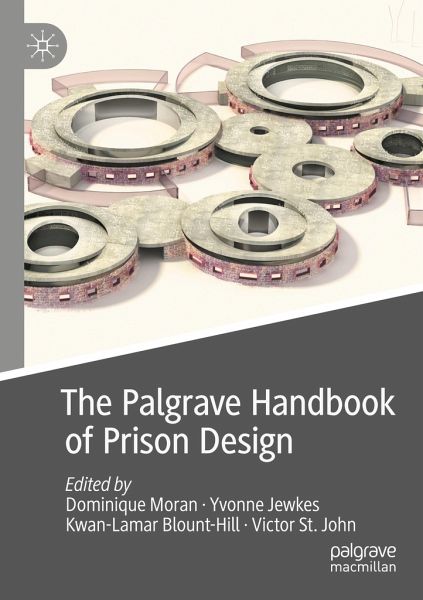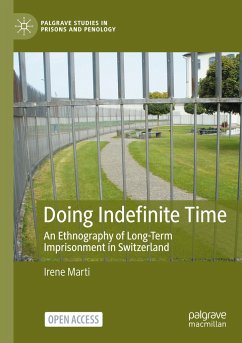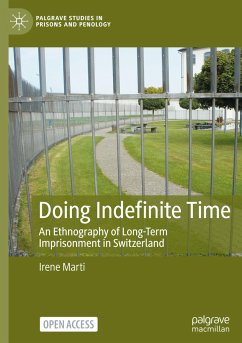
The Palgrave Handbook of Prison Design
Versandkostenfrei!
Versandfertig in 6-10 Tagen
211,99 €
inkl. MwSt.

PAYBACK Punkte
106 °P sammeln!
This handbook brings together expertise from a range of disciplinary perspectives and geographical contexts to address a key question facing prison policymakers, architects and designers - what kind of carceral environments foster wellbeing, i.e. deliver a rehabilitative, therapeutic environment, or other 'positive' outcomes?The Palgrave Handbook of Prison Design offers insights into the construction of custodial facilities, alongside consideration of the critical questions any policymaker should ask in commissioning the building of a site for human containment. Chapters present experience fro...
This handbook brings together expertise from a range of disciplinary perspectives and geographical contexts to address a key question facing prison policymakers, architects and designers - what kind of carceral environments foster wellbeing, i.e. deliver a rehabilitative, therapeutic environment, or other 'positive' outcomes?
The Palgrave Handbook of Prison Design offers insights into the construction of custodial facilities, alongside consideration of the critical questions any policymaker should ask in commissioning the building of a site for human containment. Chapters present experience from Australia, Chile, Estonia, Ireland, New Zealand, Norway, Russia, the United Kingdom, and the United States - jurisdictions which vary widely in terms of the history and development of their prison systems, their punitive philosophies, and the nature of their public discourse about the role and purpose of imprisonment, to offer readers theories, frameworks, historical accounts,design approaches, methodological strategies, empirical research, and practical approaches.
The Palgrave Handbook of Prison Design offers insights into the construction of custodial facilities, alongside consideration of the critical questions any policymaker should ask in commissioning the building of a site for human containment. Chapters present experience from Australia, Chile, Estonia, Ireland, New Zealand, Norway, Russia, the United Kingdom, and the United States - jurisdictions which vary widely in terms of the history and development of their prison systems, their punitive philosophies, and the nature of their public discourse about the role and purpose of imprisonment, to offer readers theories, frameworks, historical accounts,design approaches, methodological strategies, empirical research, and practical approaches.














